Nikon Small World Photomicrography Competition 2013
Categories: Microworld
By Pictolic https://pictolic.com/article/nikon-small-world-photomicrography-competition-2013.htmlNikon has announced the winners of its 2013 Small World Photo Contest. Started in 1974, the photo contest has been inviting photographers and scientists every year to share their microscopic images of a wide variety of subjects. Today we share with you photos of the winners of the contest in different categories. This year, the first place was taken by a 250 times enlarged image of a diatom by the Dutchman Wim van Egmond (pictured # 2), which shows all the complexity and amazing details of this organism. So, welcome to the micro-world!
(Total 32 photos)
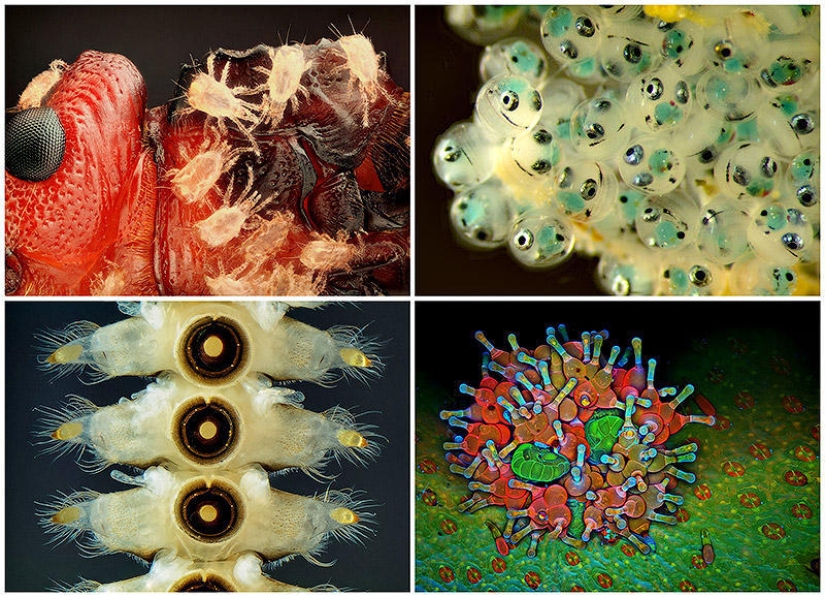
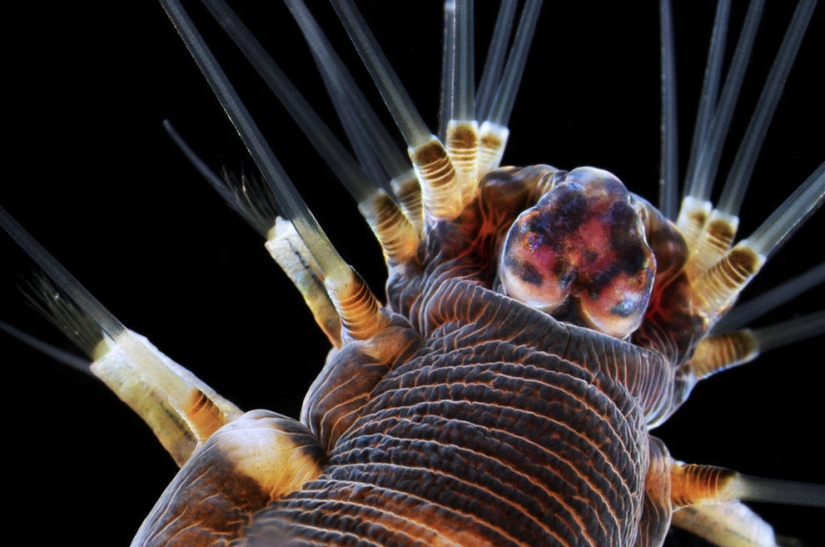
1. 3rd place went to a 20x magnification picture of a marine worm taken by Dr. Alvaro Esteves Migotto from the University of São Paulo. (Dr. Alvaro Esteves Migotto)
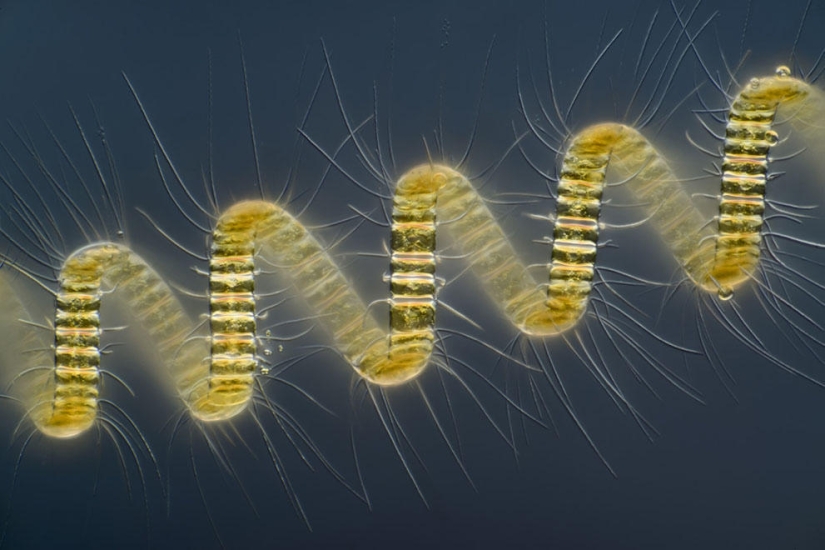
2. And here is a snapshot of this year's competition winner, a marine diatom, magnified 250 times. (Wim van Egmond)
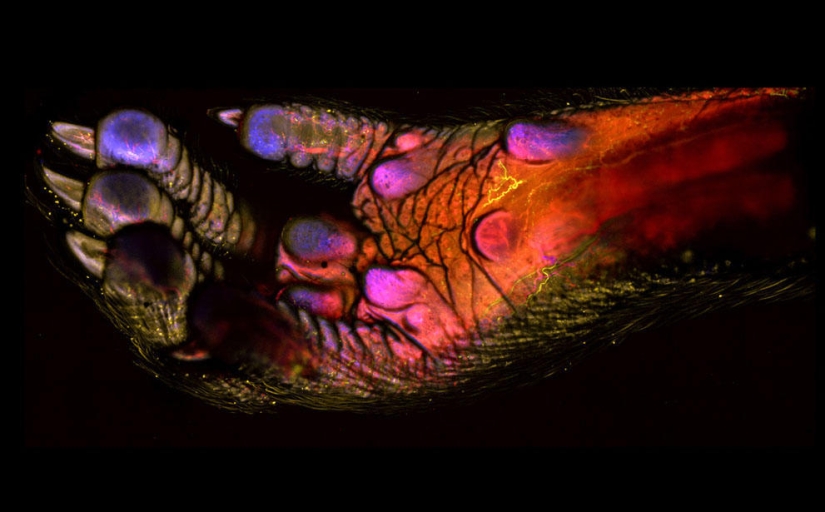
3. A 100x magnification of an adult mouse foot showing blood vessels, immunocytes, and soft tissue. The picture was taken by Dr. Andrew J. Wooley, Himanshi Desai and Kevin Otto of Indiana University. (Dr. Andrew J. Woolley, Himanshi Desai and Kevin Otto)
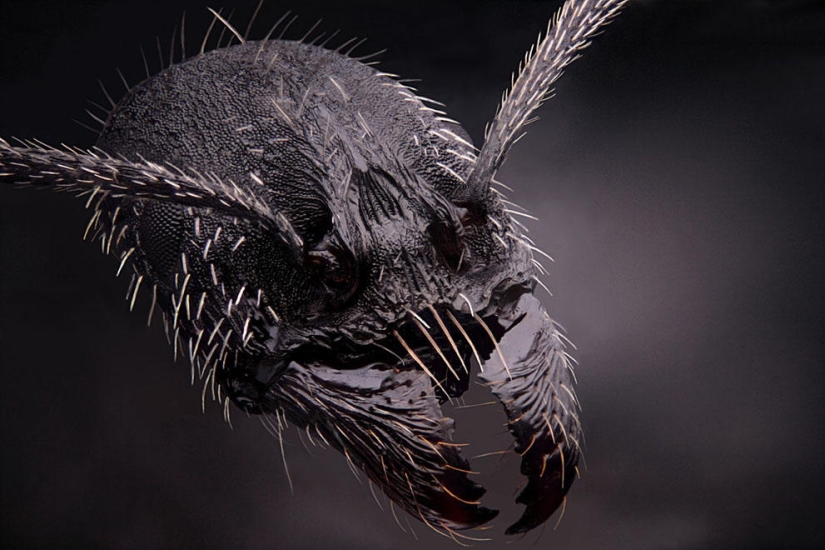
4. 4x magnification of the worker ant's head. Photo by Dimitri Siborut from Paris. (Dimitri Seeboruth)
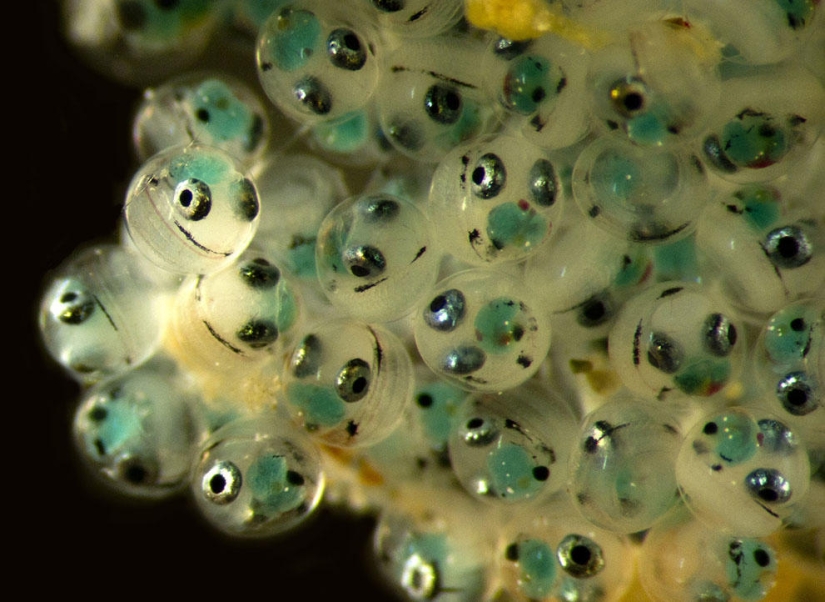
5. Laying fish eggs. Photo by Dr. Jamie Gomez-Gutirrez from Mexico. Magnified 6.6 times. (Dr. Jaime Gomez-Gutierrez)
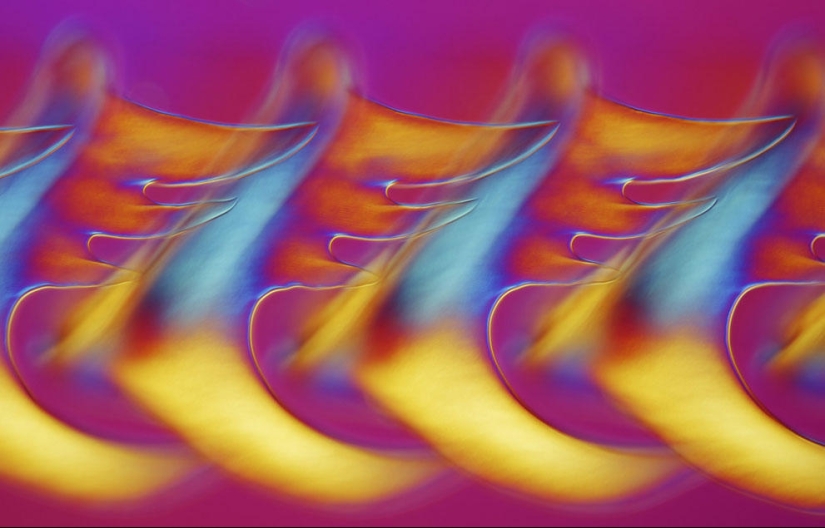
6. 200-fold increase in the radula of the mollusk. Photo by Dr. David Maitland of Feltwell, Norfolk, UK. (Dr. David Maitland)
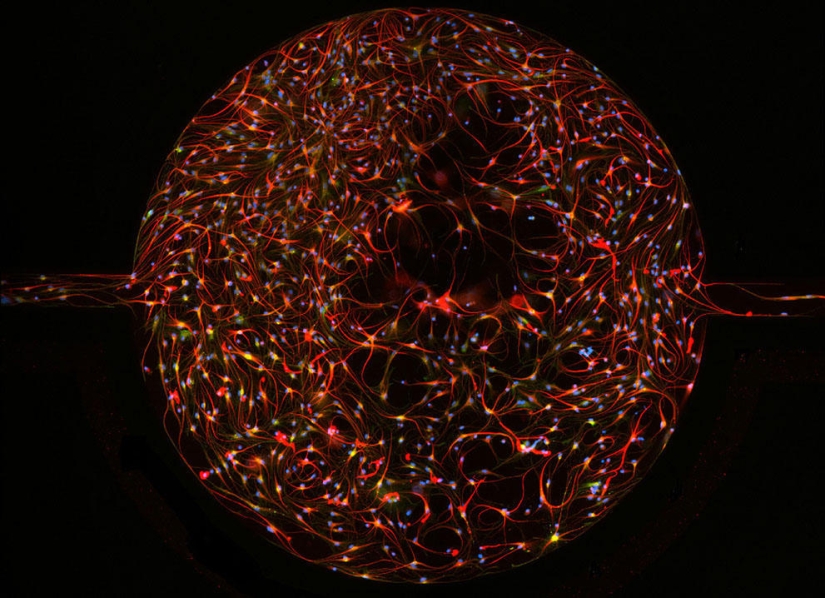
7. Photo of a rat brain with astrocytes bred in the blood-brain barrier. Photo by Ashley M. Smith, Huntsville, Alabama, USA. (Ashley M. Smith)
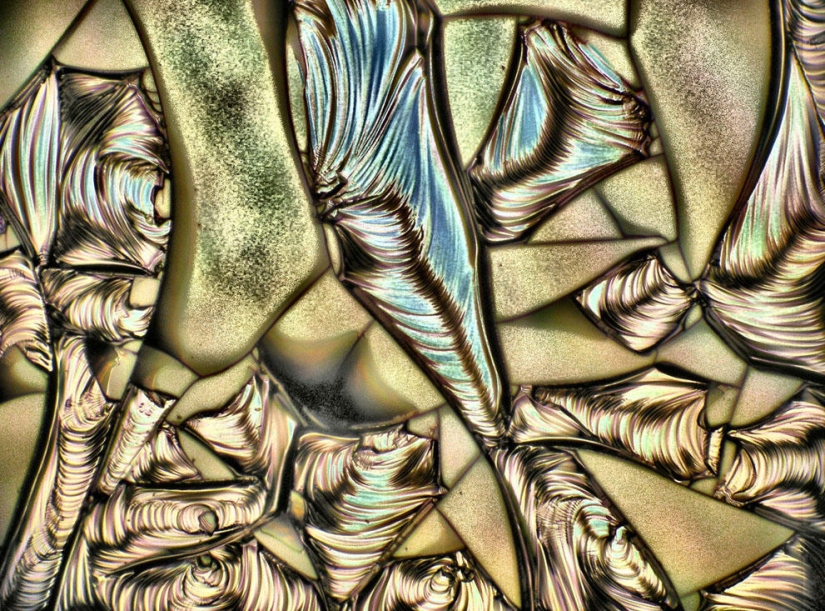
8. 20x magnification of silicon nanocrystals in silicon dioxide. Photo by Jan Valenta and Benjamin Brun from Charles University in Prague. (Jan Valenta and Benjamin Bruhn)
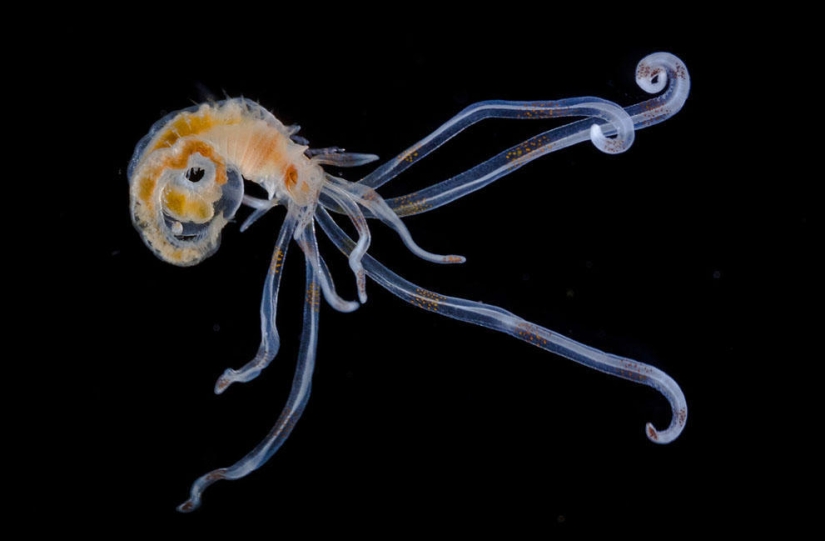
9. Photo of an annelids larva, magnified 100 times. Photograph by Christian Sardet from the National Science Center of France. The photo took 18th place. (Christian Sardet)
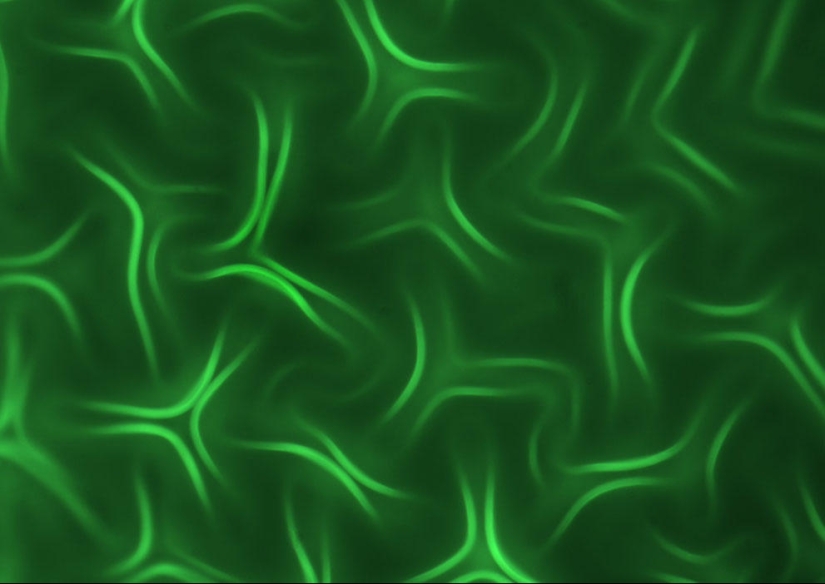
10. 10X double layer hydrogel magnification. Photo by Katherine Russell and Dayong Chen, University of Massachusetts Department of Polymer Science and Engineering. (Catherine Russell and Dayong Chen)
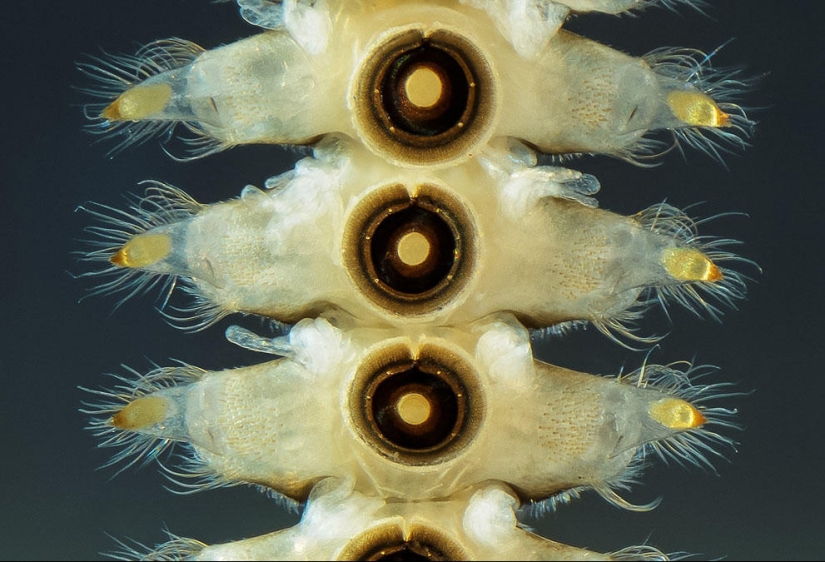
11. 40-fold increase in the abdominal segments of the larva of a two-winged fly. Picture of Fabrica Pale. (Fabric Parais)
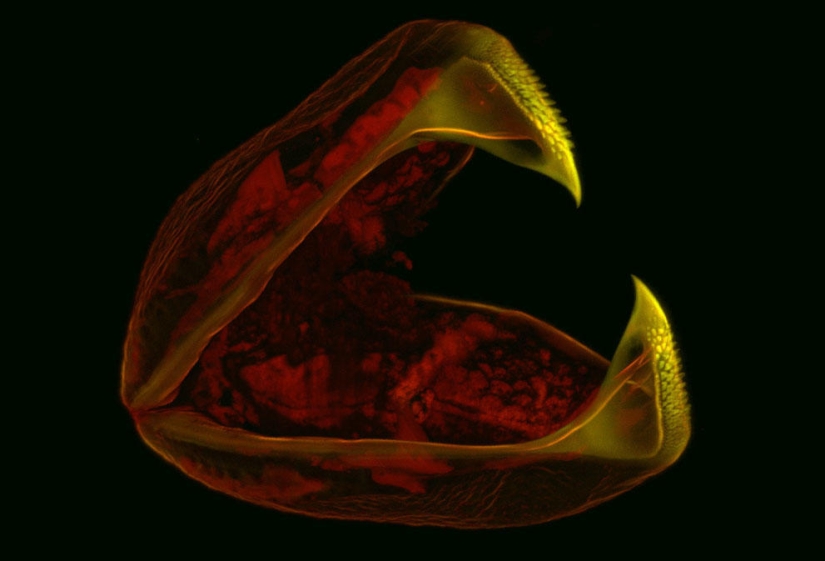
12. 60-fold increase in the larva of the mollusk. Photo by Mark A. Sanders of the University of Minnesota. (Mark A. Sanders)
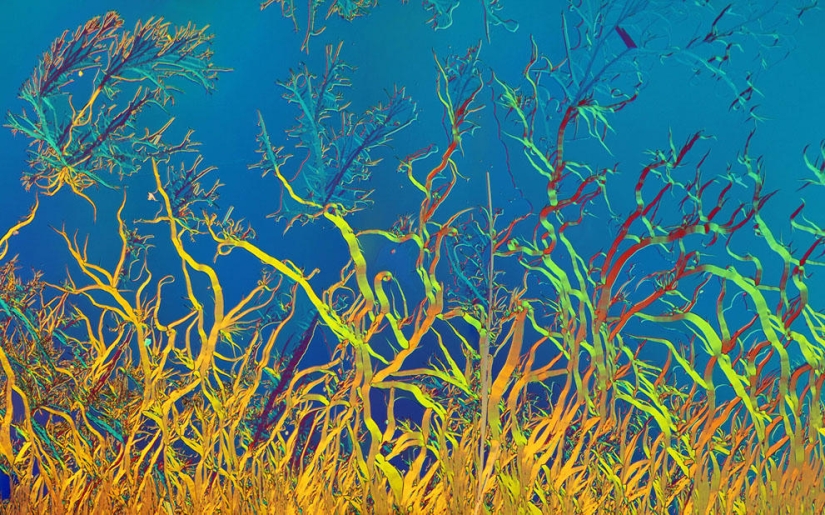
13. 40-fold increase in the crystallization of tartrazine (a dye commonly used as food coloring). Photo by Frederic Labune. (Frederic Labaune)
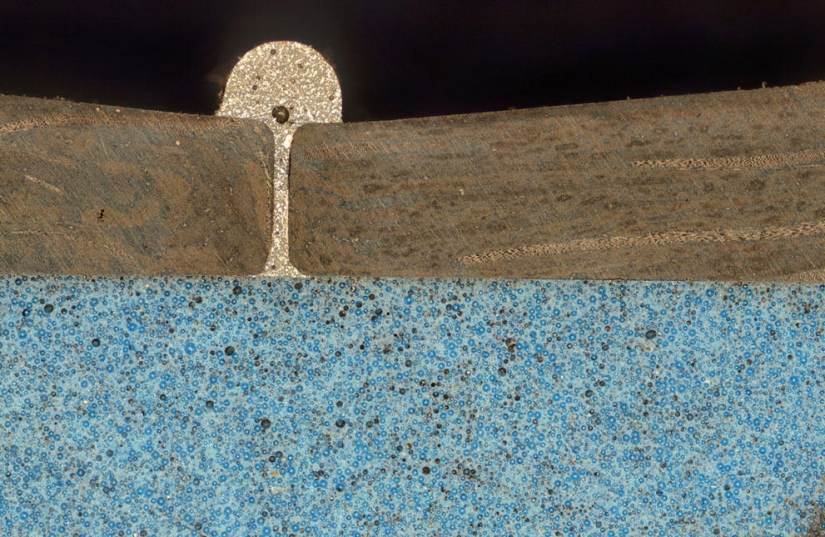
14. 50x magnification in section. In the photo: two dark brown, fiber-reinforced complex substances that are tied together with gray tape and filled with a blue mass of complex composition. Photo by Peter Pook of Linenenburg, Nova Scotia. (Peter Pook)
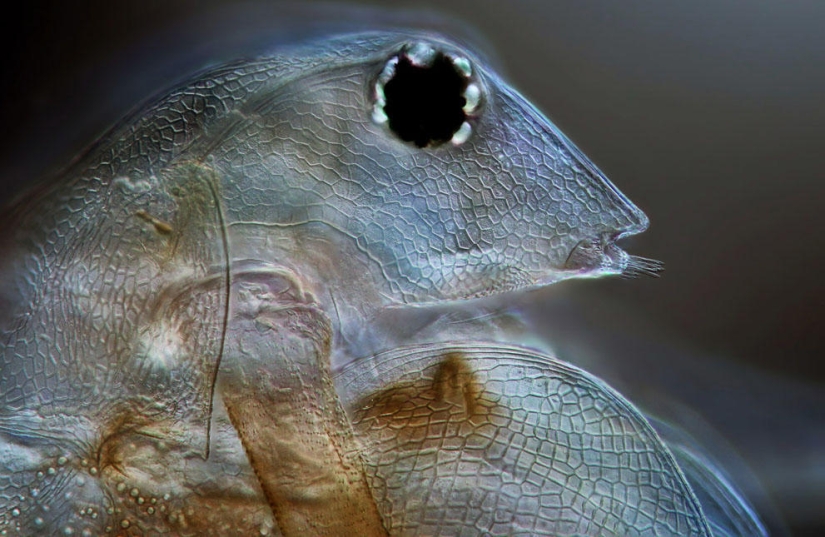
15. 200x magnification of large daphnia by Jerzy Rojkowski from Krakow, Poland. (Jerzy Rojkowski)
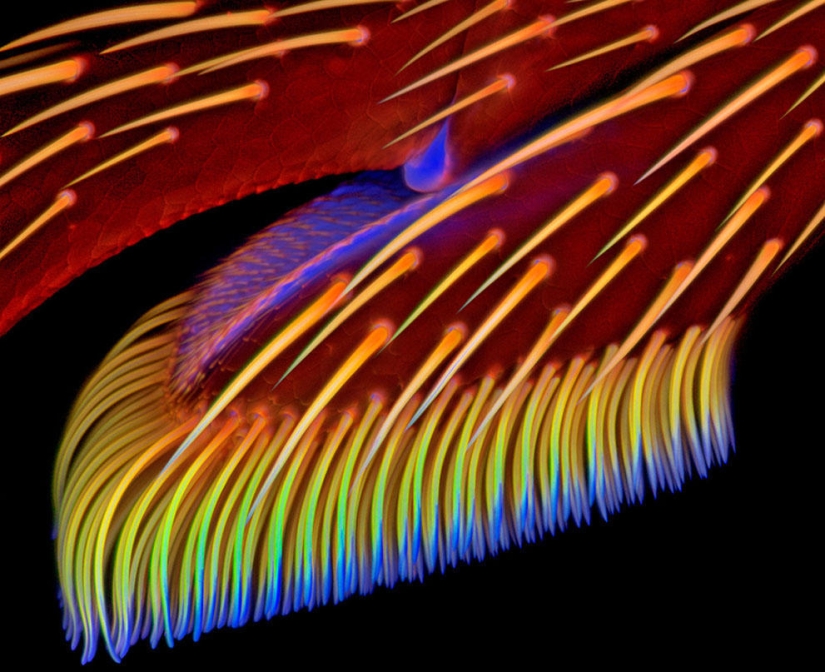
16. 7th place photo: 20x magnification of the adhesive pad on a ladybug's foot. Photo by Dr. Jan Michaels from Kiel, Germany. (Dr. Jan Michels)
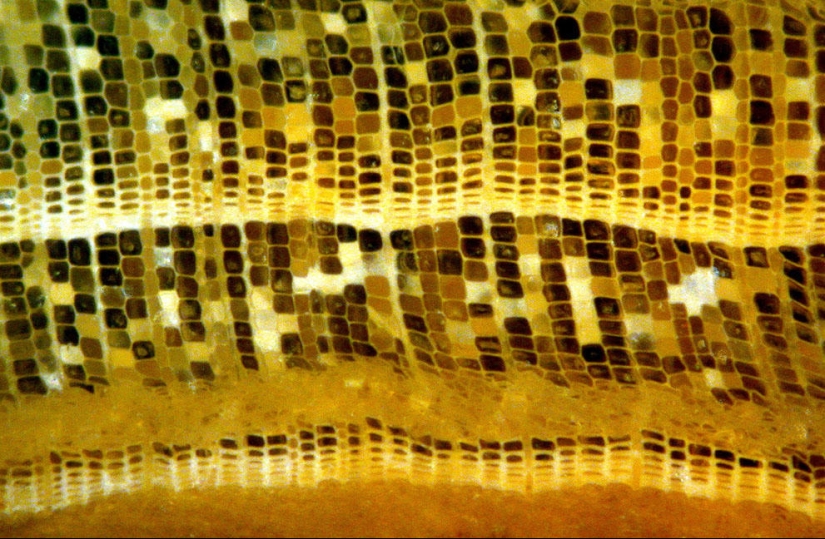
17. A hundredfold increase in the polished part of a fossilized seahorse. Photo by Dr. Josef Spaczek from Charles University in Prague. (Dr. Joseph Spacek)
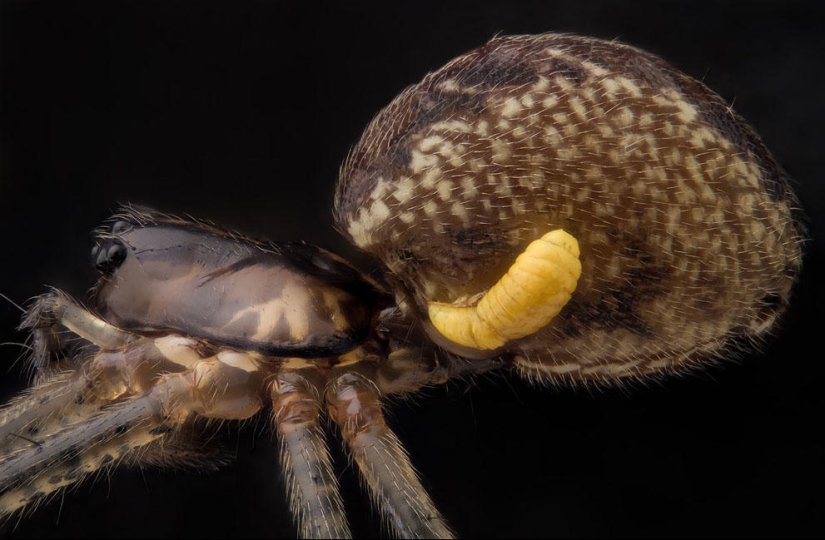
18. 16th place was taken by a five-fold increase in linifid spiders with a parasitic larva on their belly. Photo by Geir Drang from Asker, Norway. (Geir Drange)
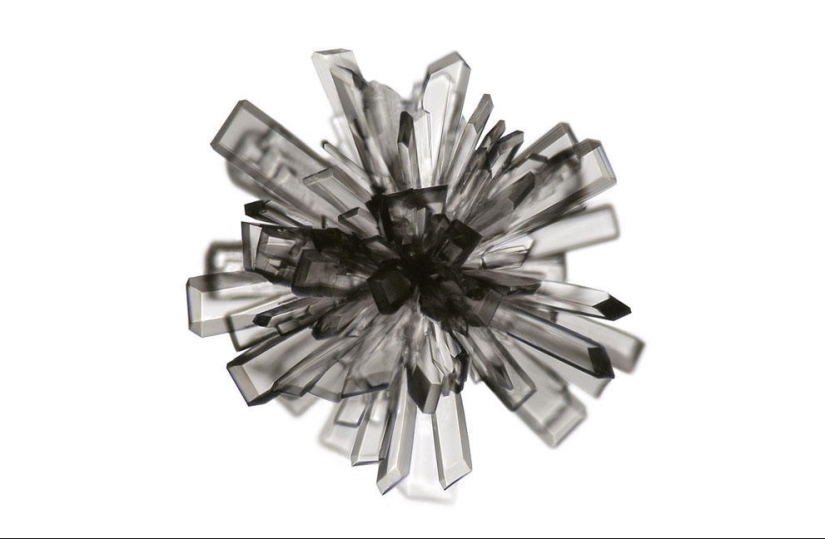
19. Crystal of ascorbic acid (vitamin C), magnified 100 times. Photo by Raul M. Gonzalez from Mexico. (Raul M. Gonzalez)
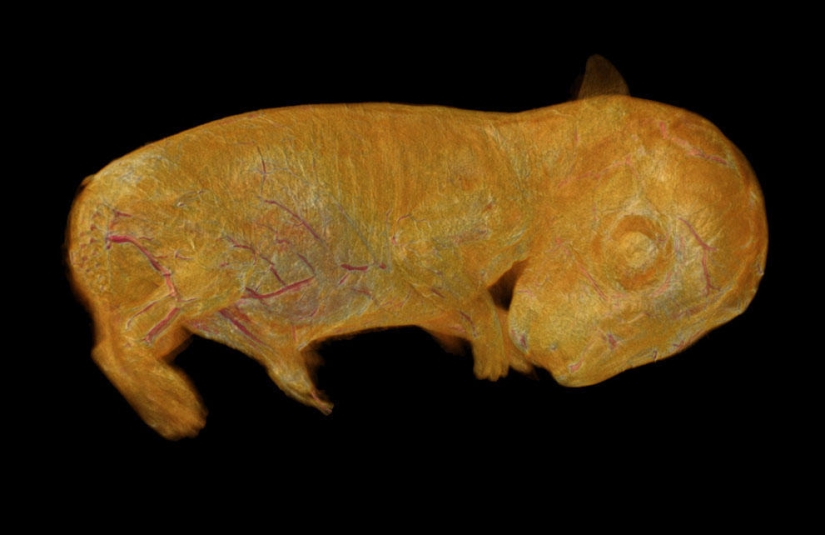
20. 3D reconstruction of a photo of a rabbit embryo close to birth. Photo by Dr. Gabriel G. Marins and Rob Bryson-Richardson of the University of Lisbon, Portugal. (Dr. Gabriel G. Marins and Rob Bryson-Richardson)
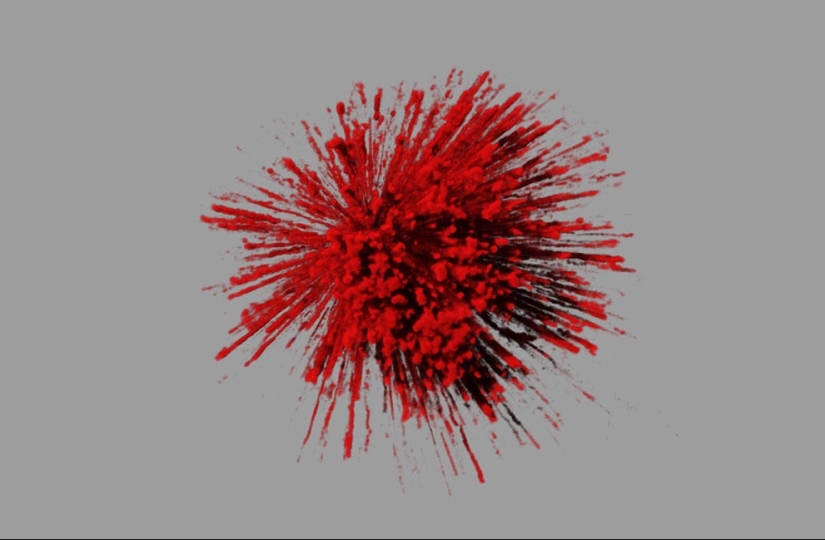
21. In 20th place was a photo of the dynamics of the movement of sugar in fat cells. Photo by Dr. James Berkfield from Sydney, Australia. (Dr. James Burchfield)
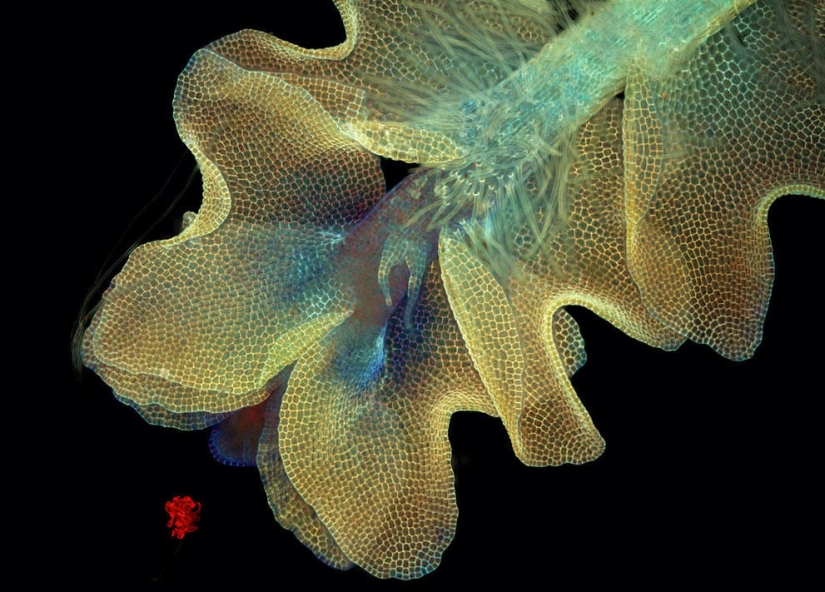
22. 8th place photo: 50x enlargement of liverwort and cyanobacteria. Image of Magdalena Turzhanska from the Institute of Experimental Biology, University of Wroclaw in Poland. (Magdalena Turzanska)
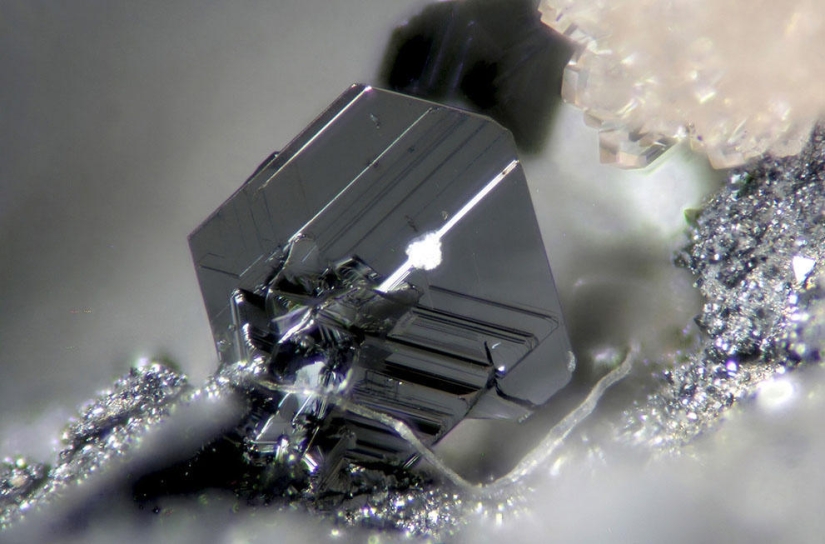
23. A hundredfold increase in pierceite, a rare silver mineral, in beautiful hexagonal crystals, from a copper mine in Spain. Photo by Dr. Cesar Menor Salvan from Madrid. (Dr. Cesar Menor Salvan)
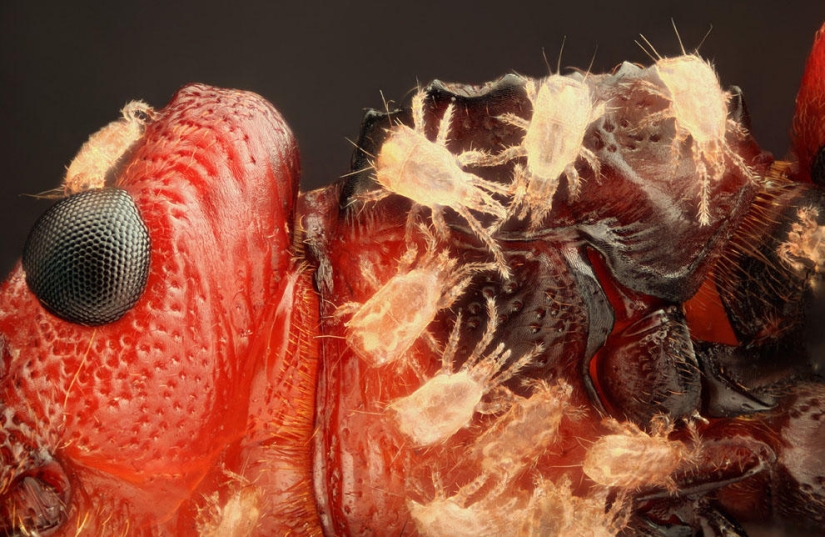
24. 10x magnification of a bark beetle with ticks sitting on it. Photo by Nicola Rame from Budapest. (Nikola Rahme)
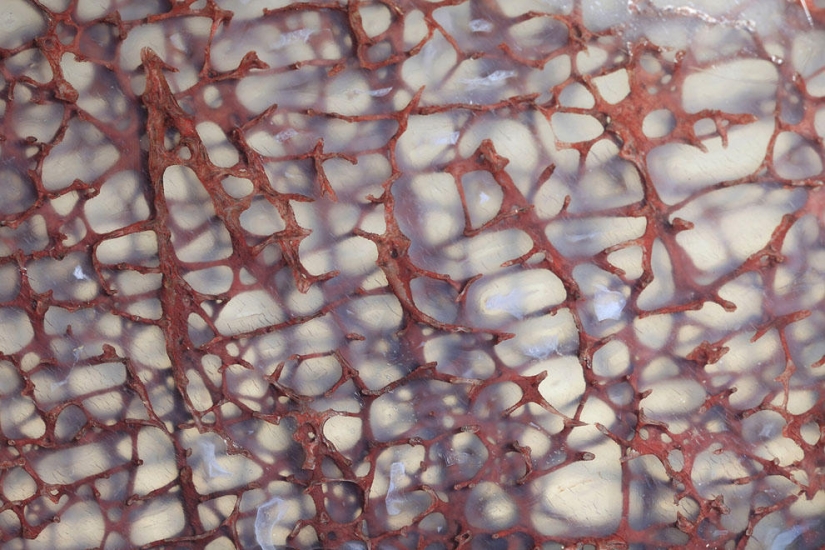
25. 10th place photo: thin section of dinosaur bone preserved in clear agate. Photo by Ted Kinsman of the Rochester Institute of Technology in New York. (Ted Kinsman)
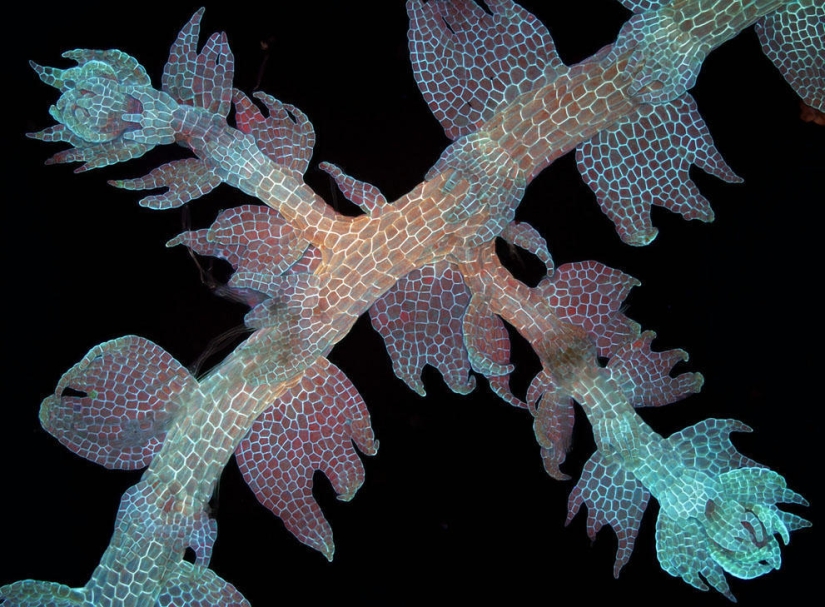
26. Another photo of Magdalena Turzhanska from the University of Wroclaw in Poland. 50x magnification of a leafy plant. (Magdalena Turzanska)
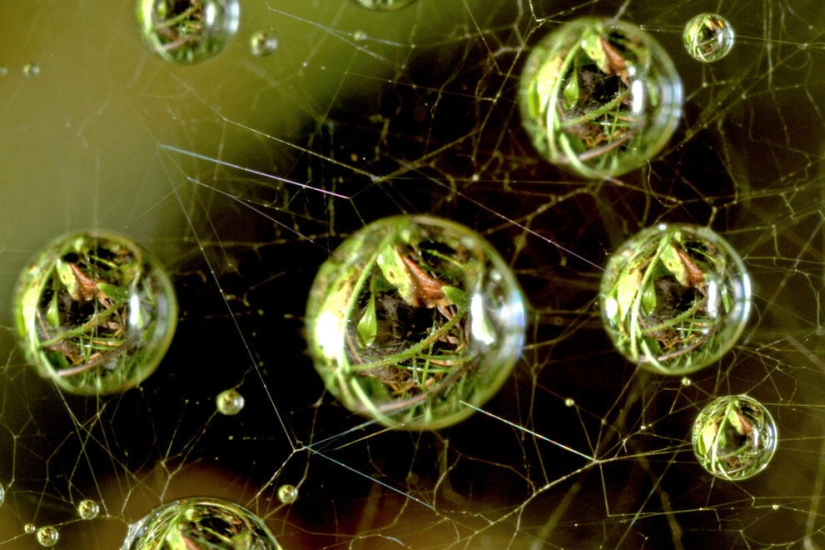
27. Dew on the web. Photo by Massimo Brizzi from Empoli, Firenze, Italy. (Massimo Brizzi)
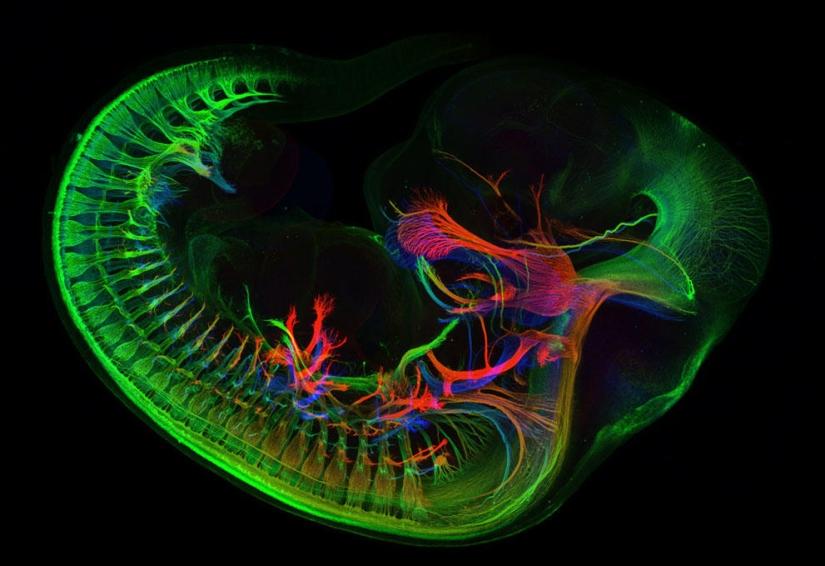
28. 14th-place photo: Peripheral nerves of a mouse embryo. Photo by Zhong Hua from the Department of Molecular Biology and Genetics at Johns Hopkins University, Maryland. (Zhonghua)
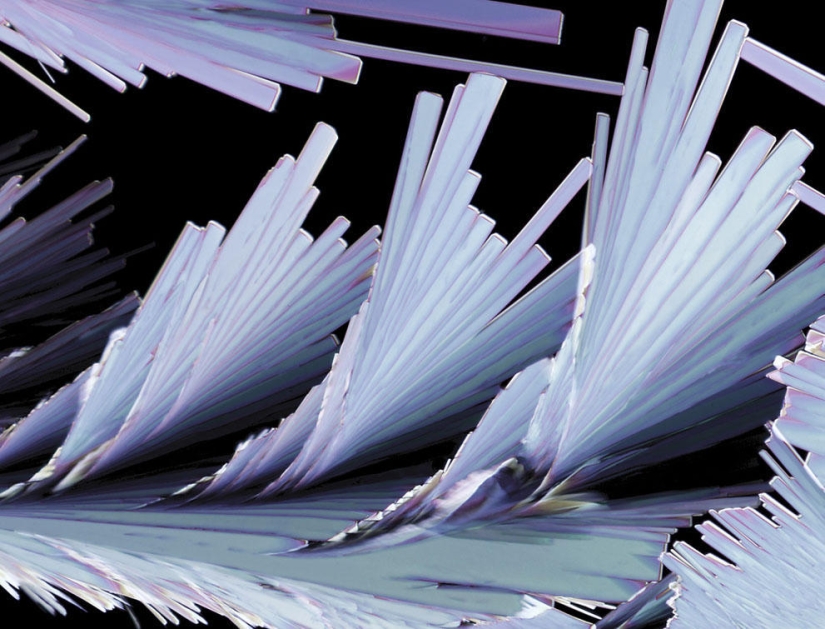
29. 200-fold increase in the crystal formation of sulfosalicylic acid. Photo by Thomas Bull from Fort Collins, Colorado. (Thomas Balla)
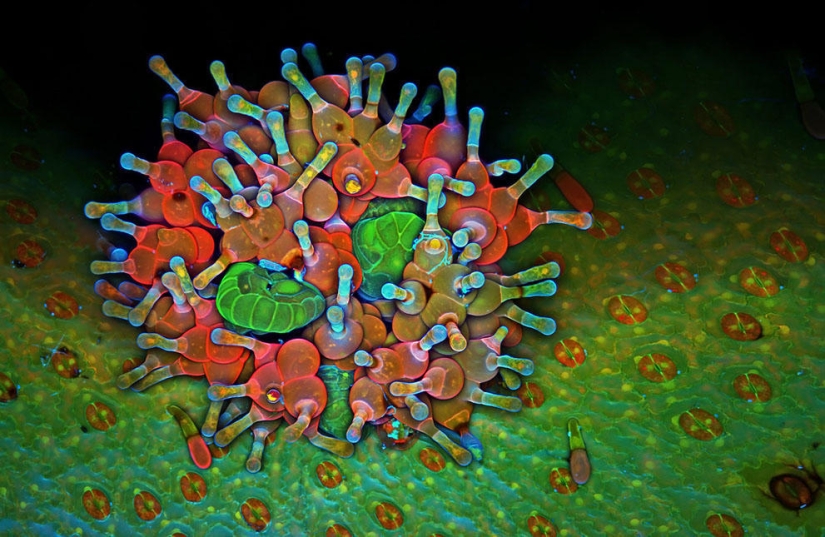
30. A hundredfold increase in fern sorus. Photo by Dr. Igor Sivanovich of the Howard Hughes Medical Institute in Virginia. (Dr. Igor Siwanowicz)
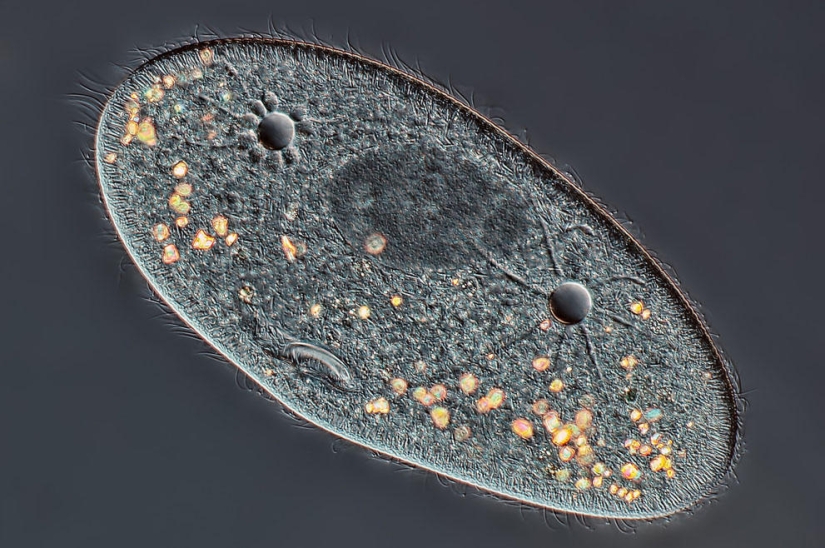
31. Fourth place was taken by this picture: a 40-fold increase in the nucleus, mouth and contractile vacuole of the paramecium. Photo by Rogelio Moreno Gilla from Panama. (Rogelio Moreno Gill)
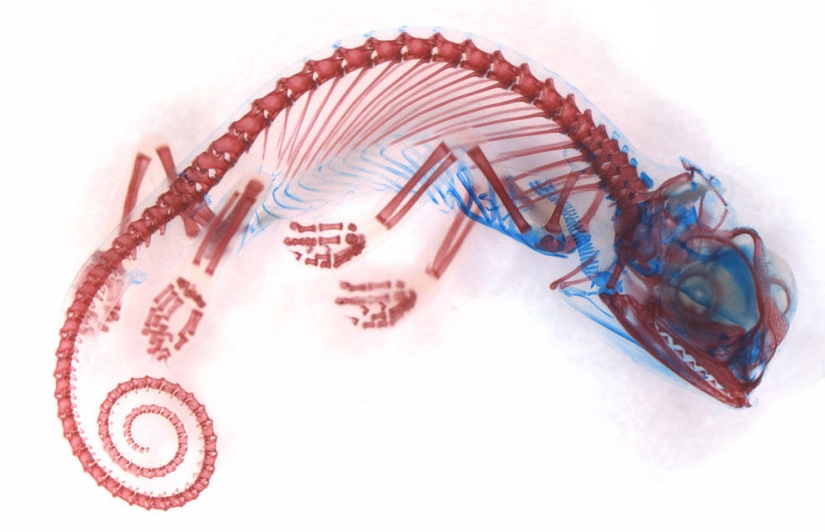
32. 6th place photo: Chameleon embryo with cartilage (blue) and bones (red). Photo by Dorit Hockman of the University of Cambridge, UK. (Dorit Hockman)
Keywords: Nikon Small World competition
Post News ArticleRecent articles

It's high time to admit that this whole hipster idea has gone too far. The concept has become so popular that even restaurants have ...

There is a perception that people only use 10% of their brain potential. But the heroes of our review, apparently, found a way to ...

New Year's is a time to surprise and delight loved ones not only with gifts but also with a unique presentation of the holiday ...